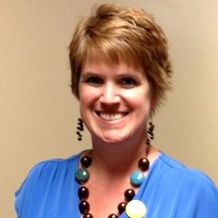Research has shown that LGBTQ+ youth are over- represented in the foster care system. This means that the percentage of youth in foster care who are LGBTQ+ identified is larger than the percentage of LGBTQ+ youth in the general youth population. LGBTQ+ youth in foster care also face disparities like differences in experiences in care or treatment by the system.
LGBTQ+ youth enter the foster care system for many of the same reasons as non-LGBTQ+ youth: abuse, neglect, and parental substance misuse. Many LGBTQ+ youth have the added layer of trauma that comes with being rejected or mis-treated because of their sexual orientation, gender identity, or gender expression. More than 30% of youth in out of home care identify as LGBTQ+.
An LGBTQ+ affirming home is one where resource parents welcome all lesbian, gay, bisexual, transgender, queer, and questioning (LGBTQ+) children and youth into their home and encourage them to live authentically in all aspects of family life. It is also a place where all children and youth are treated with respect and dignity, and resource parents diligently work to meet their children’s specific needs.
As an Affirming Resource Parent, you will:
Encourage your LGBTQ+ child to speak openly and honestly about their sexual orientation and/or gender identity with family.
Welcome your LGBTQ+ child to participate in all family activities authentically.
Invite your LGBTQ+ child’s friends and/or partner(s) to your home and to family events and activities.
Work with community groups (such as open and affirming faith and/or social community groups) to become supportive of LGBTQ+ family members.
PFLAG – parents and friends of lesbians and gays is an excellent resource you can search by zip code https://pflag.org/findachapter/.
In addition to encouraging LGBTQ+ children and youth to live openly, as an affirming resource parent, you can provide respect and dignity by:
Treating your LGBTQ+ and non-LGBTQ+ children equally. Use the pronouns the child or teen uses to identify themselves.
Requiring other family members, including extended family members and close friends, to respect your LGBTQ+ child.
Expressing affirmation and acceptance when your child tells you or when you learn that your child is LGBTQ+.
Believing your child can have a happy future as an LGBTQ+ adult.
Resource Parents and supportive caseworkers, working to meet the specific needs of LGBTQ+ youth for children and young people that identify as LGBTQ+, should understand that “coming out” is a complex process of understanding, accepting, and valuing one’s identity. This development includes both exploring one’s identity and sharing that iden- tity with family members, friends, and loved ones. Many LGBTQ+ youth begin to understand their sexual orientation or gender identity during adolescence. Most grow up with the awareness that they are somehow different, and with some unclear ideas about what that difference might be.
As an affirming resource parent or supportive caseworker, you can meet LGBTQ+ youth needs by: Talking with your LGBTQ+ child about their sexual orientation and/or gender identity.
Supporting your child’s LGBTQ+ identity even though you may feel uncertain.
Advocating for your LGBTQ+ child when they are mistreated because of their sexual orientation and/ or gender identity.
Seeking assistance as needed to advocate for your LGBTQ+ child with respect to school bullying, accessing competent medical/mental healthcare, identifying support groups, etc.
Bringing your family to LGBTQ+ organizations and/or events.
Connecting your LGBTQ+ child with an LGBTQ+ adult role model to show them positive options for the future.
Supporting your child’s gender expression, or the way they communicate their deeply felt sense of being male, female, both, or neither. You can find additional information at https://www.hrc.org/ resources/.
We at SYNC – Sexual Health for Youth in Care, are advocates and allies for LGBTQ+ youth and those who support them as resource parents and care- giving professionals. If you need additional support and resources, please reach out to the SYNC team at https://healthysync.org/ or visit the page for LGBTQ+ resources for teens in care. You can also reach out to me personally at [email protected].
Jeanne Irwin-Olson, M.Ed is a seasoned health education professional with over 27 years of experience in the field of public health education. Her primary focus and passion is improving the sexual health education of and access to sexual health care for teens and young adults. Jeanne has worked for the Children’s Home Society since April 2022, most recently in the role of SYNC Education Trainer for the Central Region of North Carolina.
Access Additional Resources:
- Our Children’s Place
- Sesame Street In Communities
- National Resource Center on Children and Families of the Incarcerated
- Osborne Association
- See Us, Support Us
Benefits of Kinship Care
A systematic review of more than 100 studies found that when compared with children in non-relative foster care, children in kinship care have:
- More stability in placement and greater likelihood of remaining with siblings.
- Lower rates of both re-abuse and institutional abuse.
- Better behavioral and mental health, exhibited by fewer internalizing and externalizing behaviors, better adaptive behaviors, fewer psychiatric disorders, and better emotional health.
- Higher likelihood of achieving permanency through guardianship with their relative caregivers to maintain life-long connections with their family if they are unable to safely return home.


